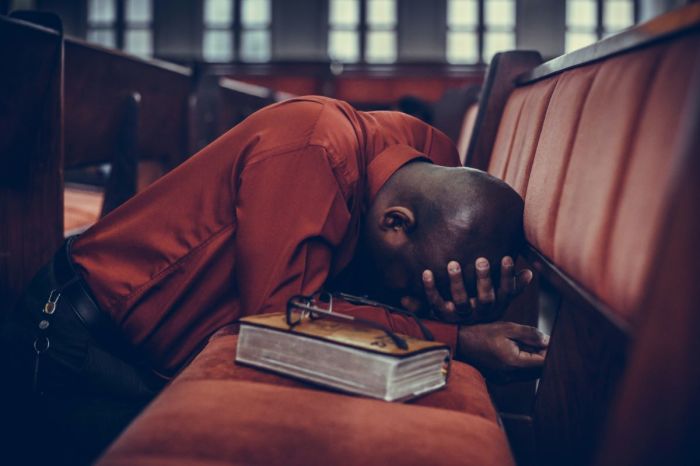Over half of Christians say they sometimes experience doubts about their religious beliefs: survey

Over half of Christians say they sometimes experience doubts about their religious beliefs, according to a new study from the prominent Evangelical research organization the Barna Group.
Titled "Doubt & Faith: Top Reasons People Question Christianity," the study is based on a survey of 2,005 U.S. adults and teenagers ages 13-17 conducted online from Dec. 13–22, 2022, with a margin of error of +/- 2.0 percentage points at the 95% confidence level.
The study also utilized a survey of 511 U.S. Protestant senior pastors conducted online from Dec. 13, 2021– Jan. 3, 2023.
"Over half of teens and adults (so, the U.S. general population ages 13+) report that they've experienced doubts about their religious beliefs at least sometimes (12% frequently, 16% occasionally, 24% sometimes) in the past few years," an overview of the study states.
"Similarly, exactly half of those who are Christian or who have some Christian background or experience (50%) say they have gone through a 'prolonged' period of doubt at some point in their life."
According to the study, 27% of respondents said their doubt came from "past experiences with a religious institution." In contrast, respondents who were not practicing Christians cited the "hypocrisy of religious people" as "the top driver of doubt."
Nonpracticing Christians were more likely than practicing Christians to have doubts about their faith.
Eleven percent of nonpracticing Christians said they "frequently" experience doubts about their religious beliefs, while 18% said "occasionally," 30% said "sometimes," 24% said "rarely" and 23% said "never."
As for practicing Christians, 8% said they "frequently" experience doubts about Christian beliefs, 12% said "occasionally," 20% said "sometimes," 37% said "rarely" and 23% said "never."
The Barna data suggests that "three out of four U.S. adults (74%) say they want to grow spiritually. Additionally, the same proportion (77%) say they believe in a higher power."
The study concludes that "most in the general population, and Christians in particular, see doubt as a phase to move through, and arriving at certainty is the preferable end goal."
"Interestingly, teens and adults of other faiths and especially those of no faith have more comfort with doubt, less often seeing it as something to be overcome — and even seeing it as something to be praised," the study states.
"Elsewhere in this study, and throughout many years of Barna's research, our data shows that those who are reluctant to affiliate with a church say Christians seem closed and judgmental, or that they often value being right in their beliefs over and above helping others make their own faith discoveries."
When asked to identify reasons why they doubt Christian beliefs, 42% of respondents with "no faith" said "hypocrisy of religious people," 31% said "science," 30% said "human suffering," 29% said "one religion can't have all the answers" and 24% said "conflict in the world."
Practicing Christians (51%) were most likely to select "none of the above," compared to 40% for all Christians and 34% for nonpracticing Christians. Over a quarter of nonpracticing Christians listed "the hypocrisy of religious people" (26%) and "human suffering" (26%) as reasons they have doubts about their faith. About 22% of nonpracticing Christians said "conflict in the world" is a reason they have doubts about Christian beliefs.
Among practicing Christians, "human suffering" (19%) was the top reason listed for why they have doubts about Christian beliefs, while 15% said "hypocrisy of religious people" and 15% selected "'woke' Christianity."
The Barna study found that pastors appear to be "attuned" to the realities of why people experience doubts about Christian beliefs.
"By an overwhelming majority, pastors assume that past experiences with a religious institution (83%) or the hypocrisy of religious people (80%) cause people to doubt Christian beliefs," the overview reads. "These are indeed among the top responses among people of no faith, along with science and human suffering. Those in the pews, meanwhile, seem less aware of — or less willing to admit — potential barriers to belief."
In 2017, Barna released a study that found that about 65% of U.S. Christians admitted to having doubts about their beliefs, with 40% saying they had doubt but "worked through it," while 26% said that they still experience it.
The 2017 study also found that 53% of self-identified Christian respondents said that their faith became stronger due to their experience with doubt, while 12% of respondents said they lost their faith after their period of questioning.
Nicole Alcindor is a reporter for The Christian Post. She can be reached at: [email protected].




























